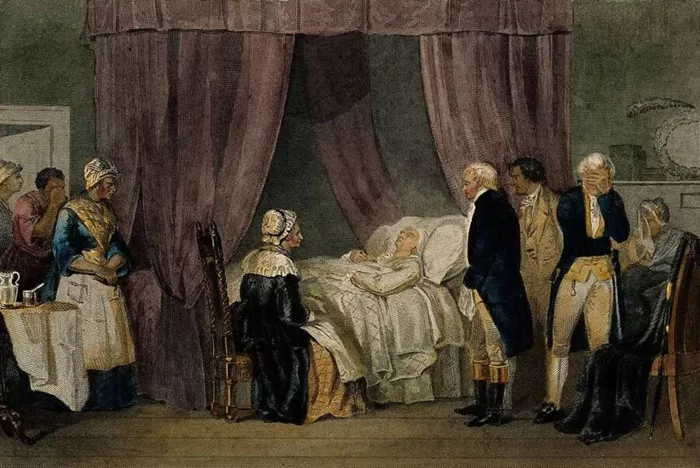December 14 is a significant date in American history, marked by various pivotal events that have shaped the nation. This article explores these events in detail, providing context and implications for each.
What Happened on December 14 in American History?
The Death of George Washington (1799)
On December 14, 1799, George Washington, the first President of the United States and a founding father, passed away at his Mount Vernon estate in Virginia at the age of 67. His death marked the end of an era for the young nation. Washington had been a central figure in the American Revolutionary War and had presided over the Constitutional Convention in 1787.Washington’s final hours were marked by illness, which had developed rapidly over a short period. He reportedly expressed gratitude to those attending him, urging them not to trouble themselves further as he felt his end was near. His last words were a poignant farewell to his beloved country: “I leave you with undefiled hands, an uncorrupted heart, and with ardent vows to heaven for the welfare and happiness of that country” . His death prompted national mourning and led to a deeper reflection on his contributions to American independence and governance.
Alabama Becomes a State (1819)
On this date in 1819, Alabama was admitted to the Union as the 22nd state. This event was significant as it maintained the balance between slave and free states during a time of growing sectional tensions in America. Alabama’s admission followed a period of rapid population growth due to westward expansion and the cotton boom, which was heavily reliant on slave labor.The state’s admission was part of a larger pattern during this period where new states were being added to the Union, often sparking debates over slavery’s expansion into new territories. Alabama’s entry into statehood reflected both the economic opportunities and societal challenges that characterized early 19th-century America .
The Sandy Hook Elementary School Shooting (2012)
One of the most tragic events in recent American history occurred on December 14, 2012, when a gunman entered Sandy Hook Elementary School in Newtown, Connecticut, and opened fire. This horrific act resulted in the deaths of 20 children and six adults before the shooter took his own life
.The incident shocked the nation and reignited debates about gun control laws and mental health issues in America. In its aftermath, numerous advocacy groups emerged, pushing for stricter gun regulations to prevent similar tragedies. The Sandy Hook shooting remains a pivotal moment in discussions surrounding gun violence and public safety policies .
The Heart of Atlanta Motel v. United States (1964)
On December 14, 1964, the U.S. Supreme Court delivered a landmark decision in Heart of Atlanta Motel v. United States, ruling that Congress had the authority to enforce the Civil Rights Act of 1964 against private businesses engaged in interstate commerce. This case arose when a motel owner refused to rent rooms to African Americans, challenging federal intervention in private business practices
.The Court’s ruling underscored the federal government’s commitment to ending racial discrimination and affirmed that businesses could not discriminate based on race if they served customers from multiple states. This decision was instrumental in advancing civil rights protections during a critical period of social change in America .
The Launch of COVID-19 Vaccinations (2020)
December 14, 2020, marked a historic moment as it was the day when COVID-19 vaccinations began across the United States. Health care workers were among the first to receive vaccines as part of what became known as the largest vaccination campaign in U.S. history .
This event came at a time when the nation was grappling with rising COVID-19 cases and fatalities; by that date, over 300,000 Americans had died from the virus. The rollout of vaccines represented hope for many Americans as it aimed to curb the pandemic’s devastating impact on public health and the econom.
Conclusion
December 14 has witnessed numerous significant events throughout American history—from pivotal legal decisions regarding civil rights to tragic incidents that have shaped national discourse on safety and policy. Each event reflects broader themes within American society such as governance, civil rights, tragedy, and resilience.As we reflect on these events from various perspectives—political, social, and cultural—we gain insight into how they have influenced contemporary America. Understanding these historical milestones allows us to appreciate our past while informing our future decisions as a society committed to progress and justice.
Related Topics:

